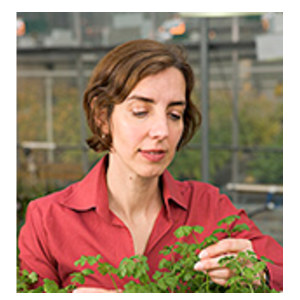Research Oversight Committee
Edward G. Dudley
ROC Chairman, Associate Professor, Food Science
Maria Brandl
Research Microbiologist
Research Microbiologist,
Produce Safety and Microbiology Research
USDA, Agricultural Research Service
Projects:
Ecology and Detection of Human Pathogens in the Produce Production Continuum:
1: Elucidate biological factors and molecular mechanisms that enhance or reduce fitness characteristics related to survival and growth of enteric pathogens in the produce production continuum
2: Identify environmental factors that affect the persistence and transmission of enteric pathogens in the produce production environment for risk assessment.
3: Develop methods for the detection and subtyping of enteric bacterial and viral pathogens from produce production environments; to aid epidemiological investigations and to distinguish pathogenic from non-pathogenic strains.
Identification of Salmonella Enterica Plant Colonization Fitness Traits Using Mutant Libraries and Barcode-Based Sequencing:
1. Identify genetic determinants involved in the apoplastic and epiphytic colonization of produce by Salmonella enterica and the role of plant systemic acquired resistance (SAR) in S. enterica persistence on produce.
2. Characterize the function of S. enterica plant colonization genes identified with mutant library screens and barcoded sequencing
3. Use single deletion mutants of S. enterica to further characterize the interaction of the human pathogen with the plant basal plant defense system.
Mark P. Stevens
Professor
Professor,
The Roslin Institute & Royal (Dick) School of Veterinary Studies,
University of Edinburgh
Research Interests:
Studies the molecular basis of virulence of bacterial pathogens of veterinary and public health importance toward the design of control strategies.
Devendra H. Shah
Associate Professor
Associate Professor
Veterinary Microbiology and Pathology
Washington State University
Research Interests:
Food and water-borne bacterial diseases; avian infectious diseases.
The primary focus of research in my laboratory includes molecular pathogenesis, diagnosis and control of the bacterial pathogens of veterinary and public health significance. I am particularly interested in the control of zoonotic bacterial agents such as Salmonella and Campylobacter and my work takes advantage of direct comparisons between pathogenic and non-pathogenic strains. This involves use of comparative genomics and proteomic approaches to understand molecular pathogenic aspects of these bacterial agents. We then apply a suite of tools, such as signature tagged mutagenesis, in vivo induced antigen technology, suppression subtractive hybridization and custom designed microarray, to characterize the differences between organisms under the broad hypothesis that the differential pathogenesis is controlled at the genetic, transcriptional, and protein level. Direct host-pathogen interaction is often a part of this story and thus I am also investigating host immune responses to these bacterial pathogens. Differences identified through this process become the subject of my hypothesis-driven experiments to determine the role of a given trait in the pathogenesis or transmission of these bacterial agents. The long-term goal of this effort is to identify useful diagnostic markers and potential therapeutic options such as improved vaccines or strategies for the control of such pathogens.
Jill E. Hobbs
Professor
Professor
College of Agriculture and Bioresources
University of Saskatchewan
My research interests include food policy, supply chain economics and consumer behaviour in agri-food markets. This has led to research examining a variety of issues including the economics of food safety, quality assurance and traceability, public and private standards and international trade, the policy environment for functional foods in Canada and internationally, transaction costs and institutional adaptation in agri-food supply chains, and consumer responses to new agricultural and food technologies. Area of specialization:
1) Supply chain relationships in the agri-food sector,
2) Consumer behaviour,
3) Food policy &
4) Economics of food safety, quality and traceability






